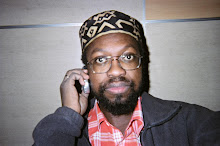Experts: Katrina death toll still rising
By MARY FOSTER, Associated Press Writer
NEW ORLEANS - The bodies are no longer being dragged from houses and buildings toppled by Hurricane Katrina, but nearly two years later many in the medical community think the storm is still killing.
Storm survivors are dying from the effects of both psychological and physical stress, from the dust and mold still in dwellings to financial problems to fear of crime, health experts and officials say.
"There is no doubt in my mind that Katrina is still killing our residents," Orleans Parish coroner Dr. Frank Minyard said this week.
"People with pre-existing conditions that are made worse by the stress of living here after the storm. Old people who are just giving up. People who are killing themselves because they feel they can't go on," Minyard said.
Some say an in-depth federal analysis is needed, despite a new state report that found no significant increase in deaths in the New Orleans area from January 2006 through June 2006. The state Department of Health and Hospitals is still compiling figures for the last six months of 2006.
Dr. Raoult Ratard, the state epidemiologist, said "the only slight increase" in deaths was in the first three months of 2006 in Orleans Parish.
But New Orleans medical officials say that jump, from 11.3 per 1,000 deaths to 14.3 per 1,000, — a leap of more than 25 percent — was anything but slight. Moreover, the report doesn't take into account evacuees who died while away from the city and were returned for burial.
"Our death rate was already high, that's huge," said Dr. Kevin Stephens Sr., director of the New Orleans Health Department.
Some New Orleans doctors questioned the accuracy of the population figures used to determine the death rate, saying they might have been too high. DHH secretary Dr. Fred Cerise said he was comfortable with the population data, which he said came from the
Census Bureau and the Centers for Disease Control and Prevention.
The city was abandoned after Katrina struck Aug. 29, 2005, and many people did not begin returning until mid-2006.
The official death tolls in New Orleans stands at about 1,100. State health officials said deaths have not been listed as Katrina-related since the end of 2005, except for bodies found under storm wreckage. But Minyard said he believes the hurricane is still behind many deaths.
Dr. Ronald Kessler, professor of health care policy at Harvard Medical School and head of a group that has monitored 3,000 exiled Katrina survivors, said reconstructing an individual's mental and physical state before death might help in determining exact causes of death.
"There are high rates of mental health problems among the survivors and previous research has found that mental disorders are predictors of earlier death rates," Kessler said. "So putting the two together in New Orleans is not surprising."
Local mental health professionals say they are encountering more people with psychological problems.
"We're seeing triple the number of people with mental health problems as we were before Katrina," said Leah Hedrick, social worker at Ochsner Hospital. "Depression, suicidal, anxiety, abuse of drugs and alcohol, and along with that comes a lot more physical problems."
Many storm-damaged hospitals are not operating fully, and that could help explain why other health facilities are seeing more patients.
Another possible sign that there are more deaths are paid death notices in The Times-Picayune. Before Katrina, the newspaper usually printed about a page daily. Now, three and four pages are not uncommon.
Stephens analyzed the death-notice pattern before and after the storm and said he believes it confirms more local people are dying.
His study will be published this month in the Journal of Disaster Medicine and Public Health Preparedness, the American Medical Association's new publication on disaster management.
Many church congregations scattered after Katrina, and their bulletins that carried death notices may not be publishing.
But Stephens discounted that as a possible explanation for why the newspaper is receiving more death notices. Before Katrina, he said, it was routine to place death notices in both the newspaper and outlets such as church newsletters.
Minyard believes the medical community's different observations reach the same conclusion, and one day will be proven correct.
"Years from now when they talk about post-traumatic stress, New Orleans after Katrina will be the poster child," he said.
Source:
http://news.yahoo.com/s/ap/20070603/ap_on_he_me/katrina_still_killingLabels: Hurricane Katrina, killings



